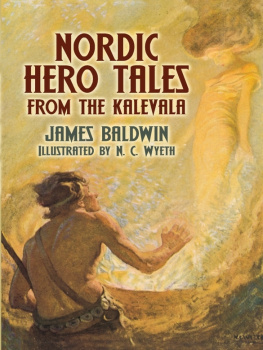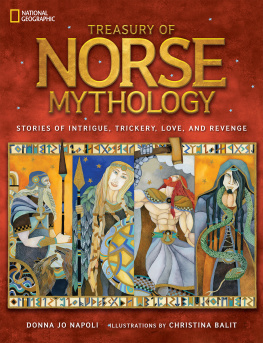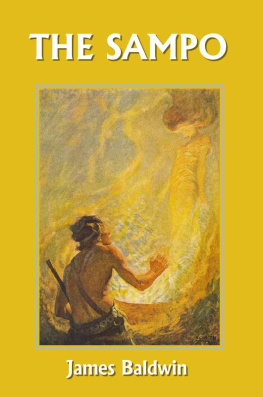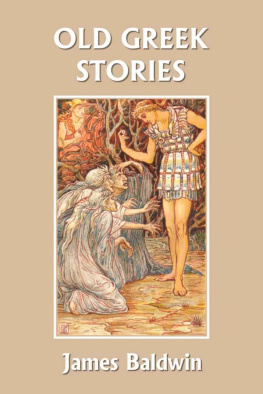
THE GOLDEN MAIDEN
The flames died suddenly away, and out of the vessel there
sprang a wonderful imagethe image of a beautiful maiden.
(See page 163)

Bibliographical Note
This Dover edition, first published in 2006, is a newly reset, unabridged republication of the work originally published by Charles Scribners Sons, New York, in 1912 under the title The Sampo: Hero Adventures from the Finnish Kalevala. The four original color plates by N. C. Wyeth have been reproduced on the front, back, and inside covers. These plates also appear in black and white in their original positions in the book.
Library of Congress Cataloging-in-Publication Data
Baldwin, James, 18411925.
Nordic hero tales from the Kalevala / James Baldwin ; illustrated by N. C. Wyeth.
p. cm.
Summary: An illustrated retelling, drawn from professional minstrels and from an epic poem called Kalevala, of the adventures of three Finnish heroes who are rivals for the hand of the Maiden of Pohja.
9780486122076
1. TalesFinland. [1. FolkloreFinland.] I. Wyeth, N. C. (Newell Convers), 18821945, ill. II. Kalevala. III. Title.
PZ8.1.B193Nor 2006
[398.2]dc22
2005053731
Manufactured in the United States of America
Dover Publications, Inc., 31 East 2nd Street, Mineola, N.Y. 11501
PROEM
T his is a tale which the runolainen of the far North used to sing in hovel and hall, and which the heroes of primeval times learned by heart and taught to their children. In its original form it was related, not in plain, unvarnished prose, as you shall find it here, but in endless monotonous measures, tuned to the music of the kantele . It was made up of numerous stories, songs, folk-melodies, and incantations, with which were interwoven many independent episodes that are neither interesting nor necessary to its completeness. The weaver of tales, who now relates these adventures to modern readers, has chosen to deviate widely from the methods of the ancient story-tellers. He has combined various parts, as pleased his fancy, into one complete harmonious fabric, and, while he has retained much of the original warp and woof, he has added various and many colorings and connecting threads of his own invention. In doing this he has merely exercised the time-honored right of poets and story-tellersthe right to make new cloth out of old.
Table of Contents
I. MISTRESS AND MINSTREL
Y ou must rise early in the morning, said Dame Louhi, the Wise Woman of the North. She stood at the door of her chamber and looked back into the low-raftered hall where her daughter was spinning. Her face was wrinkled and grim, her thin lips were puckered over her toothless mouth, her gray-green eyes sparkled beneath her shaggy eyebrows.
She paused and listened. No answer came from her busy daughter. The day was almost ended. Already the swallows were asleep under the eaves, the reindeer were lying down in their paddock, all the underlings of Dame Louhis household had retired to rest. So near was her dwelling to the sea that she could hear the waves lapping on the beach and the ice-floes crunching and grinding and pounding against the shore. But other sounds there were none.
The Mistress, Dame Louhi, grew impatient. She stamped her foot angrily, and loudly repeated her command: You must rise early in the morning, my daughter.
This time the maiden heard her. She ceased twirling her spindle, and sweetly answered, Yes, mother, for there is a great deal to be done to-morrow.
The Mistress was satisfied; and as she turned to enter her chamber you should have seen how unlike the mother was the fair daughter whom men called the Maid of Beauty. Nature had given to the maiden all the loveliness that had been denied to the dame. And she was not only surpassingly beautiful, but she was wise and skilful and very industrious. The housekeeping in the roomy dwelling beside the sea would have been shabbily attended to had it not been for her daily care; and the sun would have shone but seldom in the Frozen Land had not the Maid of Beauty encouraged it with her smiles.
So, on the morrow, long before any one else had risen, she was up and bustling hither and thither, attending to this thing and that and putting the house in order. She went out to the sheepfold and sheared six fat lambs. She spun their six white fleeces into snowy yarn, and of the yarn she wove enough cloth for six warm garments.
Then she went into the kitchen and rekindled the fire upon the hearth. She swept the floor and dusted the long benches. She scrubbed the birchwood tables till they were as white and glistening as the frost-covered meadows. She made the rooms neat and tidy and set the breakfast things to cooking. By this time the day was dawning; the sky in the east was becoming flecked with yellow and red; the cock was crowing, wild ducks were quacking by the shore, sparrows were chirping under the eaves.
The maiden paused and listenedlistened long and intently. She heard the joyful sounds of the morning; she heard the cold waves lapping and splashing upon the shore. She looked out of the door and saw the first rays of the sun dancing and glancing upon the uneasy surface of the sea. Away from the shore, she saw the broad meadows lying lonely and still under the lonely sky and beyond them the dark line which marked the beginning of the forest and the rugged land of mountains.
Suddenly, as she looked and listened, she heard a wailing which was not the wailing of the sea. She held her breath and listened again. She heard a cry which was not the cry of a sea-bird.
Oh, mother, she called, what is that strange sound? The wild geese never call so hoarsely; the waves never make such moaning. Listen, mother! What can it be?
Wise old Louhi, grim and toothless, rose quickly and hastened to the door, chattering and mumbling and grumbling. She paused and listened, but the sound seemed very faint. She ran down to the landing-place before the house, and there she listened again. Soon the sound came to her ears, louder and more distinct, and yet hard to make out. Once, twice, thrice she heard the call; and then she knew what it meant.
It is a mans voice, she said. Some hero has been shipwrecked near our shore. He is in distress; he calls for help.
She leaped nimbly into her boat. She pushed it from the shore and rowed with speed out of the little inlet and around the rocky point which jutted far into the sea. The cries grew louder, the calls were more frequent as she urged her boat forward over the sullen, icy-cold waves.
Soon she saw the shipwrecked man. He was not fighting the waves as she had supposed, but was clinging to the branches of a tree that had been uprooted and carried to sea. Ah, the sad plight of the poor man! He seemed wounded and helpless; his face was gaunt and pale; his eyes were filled with sadness and salt-water; he was shivering with cold and deep despair.
Shouting words of cheer, the Mistress hurried to him. She lifted him from the place of danger and seated him in her boat. Then with steady arms and mighty strokes she rowed homeward, nor did she pause until the boats keel grated on the beach before her door.
She carried the stranger into the house; she placed him by the warm fire; she bathed his limbs, his face, his head in tepid water and wrapped him up in soft skins of the reindeer. For three long daysyes, for four summer daysshe tended him as though he were her son, and no questions did she ask. Then, to her great joy, he sat up and soon grew well and strong.
Next page
